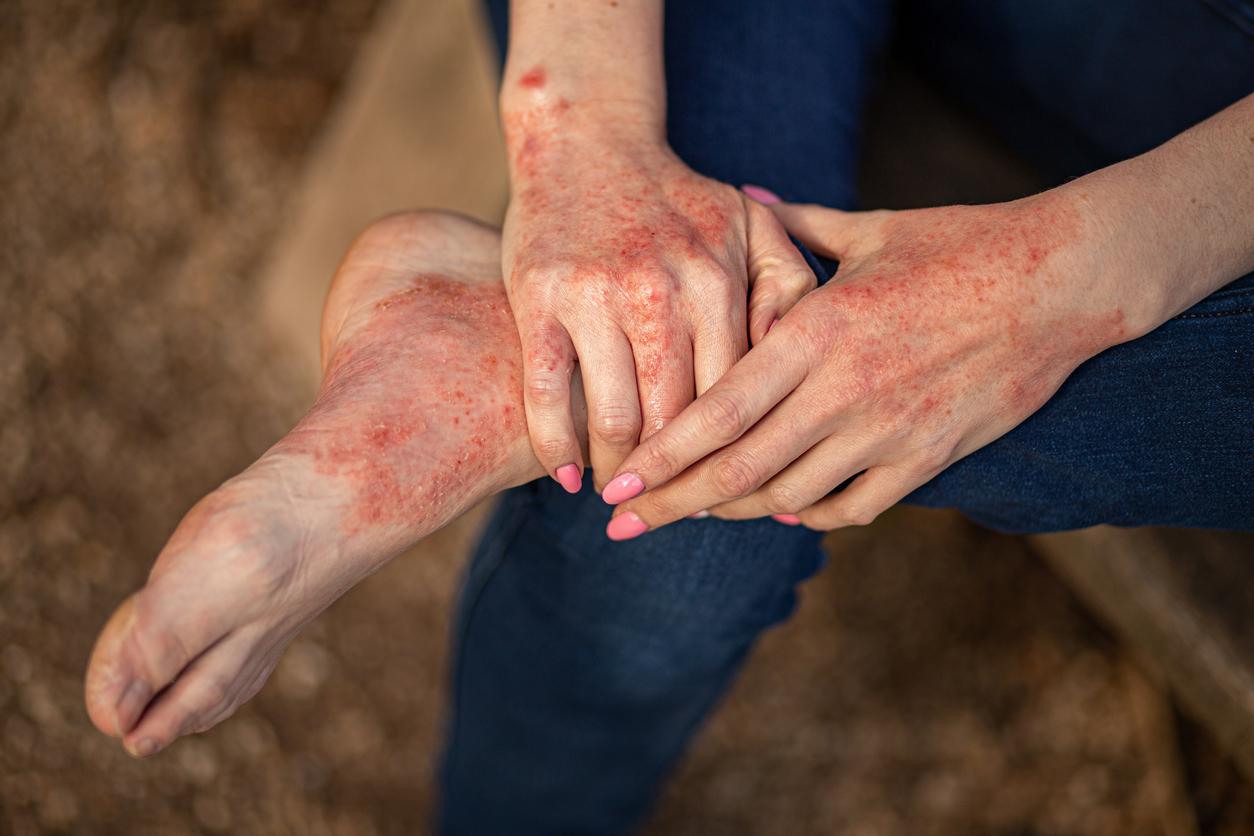Psoriasis is not due to spontaneous mutations of skin cells, which excludes one of the probable causes of this dermatological pathology.

- Psoriasis is a multifactorial inflammatory skin disease that affects 2% of the population in France.
- Somatic mutations occur in a person’s cells but will not be passed on to their descendants.
- Unlike other inflammatory diseases, somatic mutations are not responsible for the onset or spread of psoriasis.
2% of the French population is affected by psoriasis, a multifactorial inflammatory skin disease, according to the National Institute of Health and Medical Research (Inserm). A genetic predisposition to this disease is certain and several genes involved have been identified, according to health insurance. Added to this are other factors such as stress or infections.
But research continues to study this disease. Thus, a new study, published in the journal Nature Genetics, shows that psoriasis is not due to spontaneous mutations in skin cells. Excluding a cause as an explanatory factor in the development of this disease allows future research to be directed towards other avenues.
Somatic mutations do not explain psoriasis
Over time, all cells in the body accumulate mutations. If mutations occur in tissue-forming cells, such as skin, bones or blood, a pathology may develop in the affected person but it will not be passed on to their descendants, this is what the these are called somatic mutations.
In previous work, scientists Wellcome Sanger Institute (who also conducted this new study), discovered that the mutations had an impact on the development of inflammatory bowel diseases. In this new work, they therefore wanted to know if they also had a link with psoriasis.
To do this, they analyzed skin samples from the forearms of 111 people with psoriasis. By comparing them to those of people who did not have this disease, the scientists observed that the differences between the mutations observed in the sick people and the others were tiny. Additionally, there was only a slight increase in the number of mutations in people with psoriasis. Thus, theThe scientists concluded that, unlike other inflammatory diseases, somatic mutations were not responsible for the onset or spread of psoriasis.
Psoriasis: 4 new driver mutations identified in plaques
“The study of somatic mutations outside of cancer has only recently become possible, thanks to technological advances, explains Dr Sigurgeir Olafsson, first author of this study, in a communicated. Genetic analysis of non-cancer diseases can help identify new driver mutations”.
Scientists have identified four new driving mutations in psoriasis plaques. We speak of a driver mutation when a mutation gives the cell an advantage over others, that is to say, easier to grow and propagate.
“Psoriasis is a disease that affects millions of people around the world, affecting their quality of life, and very little is known about why it happens and how we can treat it”, concludes Dr. Carl Anderson, lead author of this study.


















